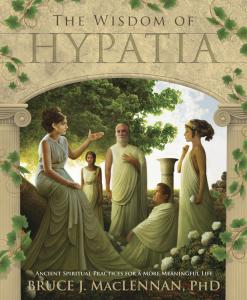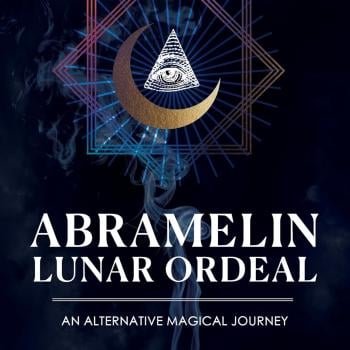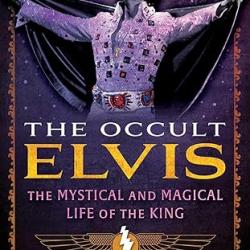Review of The Wisdom of Hypatia: Ancient Spiritual Practices for a More Meaningful Life by Bruce J MacLennan PhD

Bruce MacLennan’s The Wisdom of Hypatia introduces readers to the still living tradition of “Platonism … the tradition predates Plato, stretching back to Pythagoras (sixth century BCE) and before him to the semi-mythical Orpheus and the Persian Magi.“ This was the tradition practiced by Hypatia and taught in Alexandria to Pagans, Jews and Christians, until she was murdered by a Christian mob more than 16 centuries ago in 415 CE. Platonism is a spiritual tradition compatible with many religions.
Dr MacLennan states that the soul’s spiritual transformation is to be attained through attaining the three degrees of wisdom, represented by the three most important philosophical schools of the Hellenistic Age – Epicureanism which seeks tranquility through moderating the senses, Stoicism which seeks freedom and serenity through detachment from the things outside our control, and Platonism which is the foundation of Hypatia’s philosophy.
Dr MacLennan has designed a progressive, nine-month program of spiritual practice. The program begins with Epicureanism, then Stoicism and then devotes the last five months to the Platonism of Hypatia which consist of the macrocosm, the microcosm and the archetype, and three ways of ascending to the divine.
While Hypatia’s actual teachings have been lost, Dr MacLennan reconstructs a plausible reconstruction of them, documenting all of his sources. The end result is a course of instruction very similar to what Hypatia had probably taught. This is the next best thing to getting into a time machine and sitting at Hyptia’s feet after brushing up on your Koine Greek.
The aim of the first two degrees is to become “more moderate and sensible in your desires,” and in a far better headspace to tackle the third degree.
Mindful of the fact that some Christians and Jews embraced Neoplatonism, Dr MacLennan includes a section titled Monotheistic Interpretation for any monotheist readers seeking to incorporate these teachings into their own religious practices. Historically, some Christian philosophers saw in Neoplatonism a basis of Christian theology. Neoplatonism also ties in neatly with the psychology of Carl Gustav Jung (1875-1961), particularly with his teachings on archetypes.
Dr MacLennan’s course of instruction ends with three paths of ascent, which “will bring you into contact with the gods and divine union.” Each of these ascents is under the guidance of a goddess and a god. You should “know your way on all three paths. Different ascents will be easier at different times in your life or in different circumstances.”
The first path of ascent is the Path of Love, which occurs under the guidance of Aphrodite (Venus) and Eros (Amor, Cupido). Representations of Cupid as a cute cherub should not be taken seriously. He was a potent deity to whom other deities were vulnerable. “His swift and silent shafts were able to instantly turn a life inside out, opening and exposing the soul, for god or ill.”
The second path of ascent to The One, the Ascent by Truth, also known as the Philosophical or Contemplative Ascent, occurs under the guidance of “Athena, patroness of wisdom, and Hermes, the guide of souls, messenger between gods and mortals, and patron of those who cross the boundaries between different realms.”
The third path of ascent to The One, the Path of Trust, uses the “rituals of theurgy, the ‘high magic’ of Neoplatonism.” The deities associated with this path are Hekate, a moon goddess, and Helios, Sol, a sun god. The options presented are invocation; animation of statues; dream incubation; an alliance with a god, angel or daimon; Theurgic Ascent or Hieratic Ascent leading to union with a god, or deification.
I really liked the nine-month journey presented in this book. Just as it takes nine months to bring a child into the world, so Dr MacLennan hopes to bring a more evolved spirit into manifestation in the same timeframe. His program harks back to a time when people expected to spend years in furthering their spiritual development, whether it be in a monastery, sitting at the feet of a guru, or immersing themselves in the teachings of secret orders. It stands in stark contrast to today’s instant society of microwaved food and new age workshops promising spiritual mastery in a weekend. Even if readers don’t achieve union with a god, they’ll be more tranquil and fulfilled, as well as more knowledgeable about the classical philosophies which form the very foundation of Western spirituality.
Tony Mierzwicki
Author of Hellenismos: Practicing Greek Polytheism Today and Graeco-Egyptian Magick: Everyday Empowerment.
















